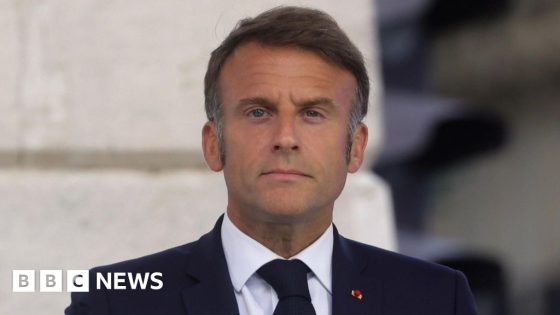French President Emmanuel Macron has unveiled his new government almost three months after a snap general election delivered a hung parliament.
The long-awaited new line up, led by Prime Minister Michel Barnier, marks a decisive shift to the right, even though a left-wing alliance won most parliamentary seats.
Despite the partnership between Macron’s centrist party and those on the right, parliament remains fractured and will rely on the support of other parties to pass legislation.
It comes as the European Union puts France on notice over its spiralling debt, which now far exceeds EU rules.
Among those gaining a position in the new cabinet is Bruno Retailleau, a key member of the conservative Republicans Party founded by former president Nicolas Sarkozy.
He has been appointed interior minister, a portfolio that includes immigration.
A total of 10 politicians from the Republicans have been given cabinet jobs, though Macron has kept a number of outgoing ministers in key posts.
Close Macron ally Sebastien Lecornu has been kept on as defence minister, and Jean-Noel Barrot, the outgoing Europe minister, has been promoted to foreign minister.
Just one left-wing politician was given a post in the cabinet, independent Didier Migaud, who was appointed as justice minister.
The post of finance minister went to Antoine Armand, a member of Macron’s own Renaissance party who, until now, was of little political renown.
Armand has the task of drafting the government’s budget bill before the new year to address France’s dire deficit.
Prior to the snap election, the European Union’s executive arm warned France that it would be disciplined for contravening the bloc’s financial rules.
France’s public-sector deficit is projected to reach around 5.6% of GDP this year and go over 6% in 2025. The EU has a 3% limit on deficits.
Michel Barnier, a veteran conservative, was named as Macron’s prime minister earlier this month.
Barnier had been the EU’s chief Brexit negotiator, and it was he who tackled the task of forming a new government capable of surviving the fractured National Assembly.
Members of the left-wing alliance, the New Popular Front (NFP) have threatened a no-confidence motion in the new government.
In the July election, the NFP won the most parliamentary seats of any political bloc, but not enough for an overall majority.
Far-left leader Jean-Luc Mélenchon called for the new government to “be got rid of” as soon as possible.
On Saturday, before the cabinet announcement, thousands of left-wing supporters demonstrated in Paris against the incoming government, arguing that the left’s performance in the election was not taken into consideration.
The alliance between centrist and conservative parties in the cabinet is not enough to pass legislation on its own.
It will depend on others, such as Marine Le Pen’s far right National Rally to stay in power and get bills into law.
Source Agencies



